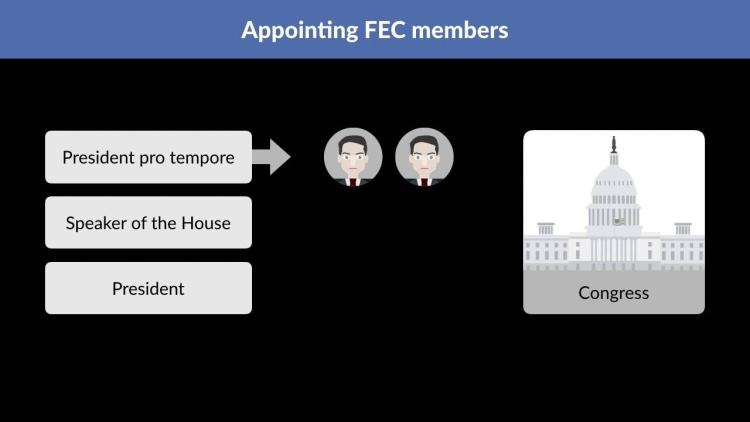Buckley v. Valeo
United States Supreme Court
424 U.S. 1, 96 S. Ct. 612, 46 L. Ed. 2D 659 (1976)
- Written by Jamie Milne, JD
Facts
In 1974, Congress amended the Federal Election Campaign Act (the act) significantly. Among other things, the amendments (1) capped the amount that an individual could contribute to any one candidate for federal office at $1,000 per election; (2) limited independent expenditures, meaning the amount a person could personally spend to support a candidate, to $1,000 per election; (3) established the Federal Election Commission (FEC) to administer and enforce the act; and (4) delineated the process for appointing FEC members. For the six voting members, two were to be appointed by the president pro tempore of the Senate, two by the speaker of the House of Representatives, and two by the president. The act then required that all six members be confirmed by both houses of Congress. Multiple political parties and candidates (plaintiffs) sued various government officials (defendants), challenging the constitutionality of the amended act. The political parties and candidates argued that the contribution and expenditure caps restricted political speech and association and therefore violated the First Amendment. They also argued that because of the FEC’s broad rulemaking and enforcement powers, the separation-of-powers doctrine precluded Congress from appointing FEC members. The district court transferred the case to the court of appeals, which upheld the act as constitutional. The political parties and candidates appealed to the United States Supreme Court.
Rule of Law
Issue
Holding and Reasoning (Per curiam)
Concurrence/Dissent (Burger, C.J.)
Concurrence/Dissent (White, J.)
Concurrence/Dissent (Marshall, J.)
What to do next…
Here's why 905,000 law students have relied on our case briefs:
- Written by law professors and practitioners, not other law students. 47,100 briefs, keyed to 995 casebooks. Top-notch customer support.
- The right amount of information, includes the facts, issues, rule of law, holding and reasoning, and any concurrences and dissents.
- Access in your classes, works on your mobile and tablet. Massive library of related video lessons and high quality multiple-choice questions.
- Easy to use, uniform format for every case brief. Written in plain English, not in legalese. Our briefs summarize and simplify; they don’t just repeat the court’s language.





